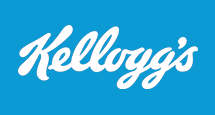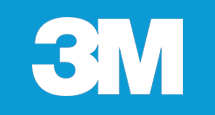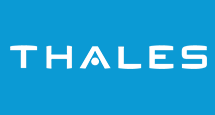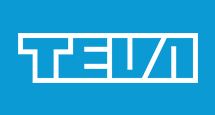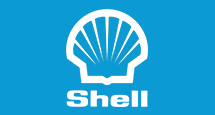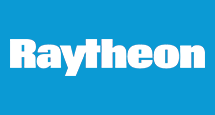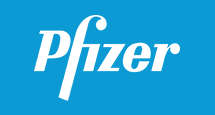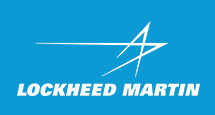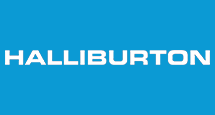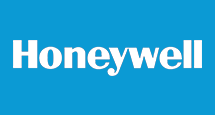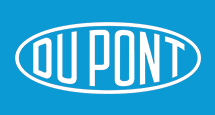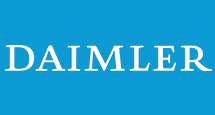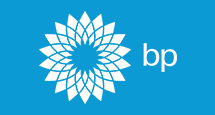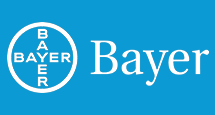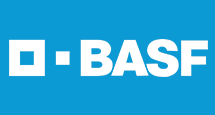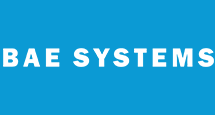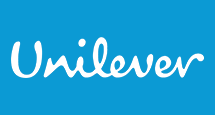Visiongain Publishes Checkpoint Inhibitors for Treating Cancer Market Report 2021-2031
29 July 2021
Visiongain has published a new report: Checkpoint Inhibitors for Treating Cancer Market Report 2021-2031: Forecasts by Category (PD1 Inhibitors, PD-L1 Inhibitors, CTLA-4 Inhibitors, Cytokines Targets, Immuno Adjuvants, Immunomodulators), by PD1 Inhibitors (Pembrolizumab (Keytruda), Nivolumab (Opdivo), Cemiplimab (Libtayo)), by PD-L1 Inhibitors (Atezolizumab (Tecentriq), Avelumab (Bavencio), Durvalumab (Imfinzi)), by CTLA-4 Inhibitors (Ipilimumab (Yervoy)), by Immuno Adjuvants (Imiquimod, Poly ICLC (Hiltonol)), by Immunomodulators (Pexidartinib (Turalio)), by Cytokines Targets (Aldesleukin, GM-CSF, Interferon Alfa-2a, Interferon Alfa-2b (Intron A®), Peginterferon alfa-2b (Sylatron®/PEGIntron®)), by Application (Lung Cancer Treatment, Renal Cancer Treatment, Blood Cancer Treatment, Bladder Cancer Treatment, Other) AND Regional and Leading National Market Analysis PLUS Analysis of Leading Companies AND COVID-19 Recovery Scenarios .
The global checkpoint inhibitors for treating cancer market was valued at US$xx million in 2020 and is projected to grow at a CAGR of xx% during the forecast period 2021-2031. DRIVER
Peripheral Immune Responses Are Critical in Achieving Favourable Clinical Outcomes
The US Food and Drug Administration (FDA) has approved ICIs targeting separate molecules for use in humans so far. Ipilimumab, an anti-cytotoxic T lymphocyte-associated protein 4 (CTLA-4) antibody, was the first treatment for metastatic melanoma to be approved. Antibodies that block the inhibitory receptor programmed cell death 1 (PD-1) on T cells, which interacts with its ligands, PD-L1 and PD-L2, to thwart active T cell responses, make up the second class of ICIs.
Increasing Support from FDA in the Approval Procedures
Currently, the FDA has licenced two anti-PD-1 antibodies: pembrolizumab and nivolumab. These medications, such as ipilimumab, were initially approved to treat advanced-stage melanomas but have since been approved to treat a variety of cancers. The third group of FDA-approved ICIs is antibodies against PD-L1. Urothelial carcinoma, non-small cell lung cancer (NSCLC), and Merkel cell carcinoma are treated with three anti-PD-L1 antibodies: atezolizumab, durvalumab, and avelumab. Anti-PD-1 and anti-PD-L1 antibodies have outperformed anti-CTLA-4 antibodies in clinical trials due to a combination of superior clinical efficacy and tolerability.
How has COVID-19 had a significant impact on the Checkpoint Inhibitors for Treating Cancer Market?
The junction of coronavirus and cancer can be learnt a lot throughout the COVID-19 period. One area of concern has been whether immunotherapies enhance the risk of mortality in people with cancer who also have COVID-19 infection. Retrospective analyzes by Dr. Rogiers1 showed that immune-control inhibitor medication did not raise the risk of mortality in COVID-19 patients with cancer, according to the results of the multicentre. The mortality risk was 8 percent for individuals receiving immunological controls.
How this Report Will Benefit you?
Visiongain’s 610+ page report provides 448 tables and 447 charts/graphs. Our new study is suitable for anyone requiring commercial, in-depth analyses for the global checkpoint inhibitors for treating cancer market, along with detailed segment analysis in the market. Our new study will help you evaluate the overall global and regional market for Checkpoint Inhibitors for Treating Cancer. Get the financial analysis of the overall market and different segments and capture higher market share. We believe that high opportunity remains in this fast-growing checkpoint inhibitors for treating cancer market. See how to use the existing and upcoming opportunities in this market to gain revenue benefits in the near future. Moreover, the report would help you to improve your strategic decision-making, allowing you to frame growth strategies, reinforce the analysis of other market players, and maximise the productivity of the company.
What are the current market drivers?
New Products/Therapy Launch Are Gaining Tractions in the Global Market
To distinguish their product offerings, new entrants into the oncology industry may use a variety of strategies. One strategy is to be first-in-class with a novel mechanism of action (MOA); another is to focus on an indication with a strong unmet need, thus providing a valuable new therapeutic choice for patients with few choices.
Increasing Support from FDA in the Approval Procedures
Currently, the FDA has licenced two anti-PD-1 antibodies: pembrolizumab and nivolumab. These medications, such as ipilimumab, were initially approved to treat advanced-stage melanomas but have since been approved to treat a variety of cancers. The third group of FDA-approved ICIs is antibodies against PD-L1. Urothelial carcinoma, non-small cell lung cancer (NSCLC), and Merkel cell carcinoma are treated with three anti-PD-L1 antibodies: atezolizumab, durvalumab, and avelumab. Anti-PD-1 and anti-PD-L1 antibodies have outperformed anti-CTLA-4 antibodies in clinical trials due to a combination of superior clinical efficacy and tolerability
Where are the market opportunities?
Unprecedented Advances in Cancer Immunotherapy
Blocking antibodies targeted to immune inhibitory receptors like CTLA-4, PD-1, and PD-L1 have been the most commonly used immunotherapeutic agents in the last decade. Several antibodies and small molecules targeting other immune checkpoints, such as LAG3, TIGIT, TIM3, B7H3, CD39, CD73, the adenosine A2A receptor, and CD47, are in clinical research. The roles of CTLA-4, PD-1, and PD-L1 in inhibiting the immune response, as well as the roles of antibodies that block these molecules in cancer immunotherapy, are discussed in this section
Unmet Medical Needs
Despite the fact that the term "unmet medical need" has significant legislative consequences, no empirical study of its actual use has been done. To that end, researchers wanted to know the annual U.S. incidence, five-year survival, and number of NCCN-recommended regimens for indications that were identified in the literature as unmet medical needs.
Competitive Landscape
The major players operating in the checkpoint inhibitors for treating cancer market are A Seagen Inc.,Agenus Inc. (Agenus), Agilent Technologies, Inc., AbbVie Inc. (AbbVie), Xencor, Inc., Ono Pharmaceutical Co., Ltd., Sanofi SA, Eli Lilly and Company, Novartis AG, Pfizer Inc. (Pfizer), Roche Holding AG (Roche), Merck & Co., Inc., Incyte Corporation, Regeneron Pharmaceuticals, Inc., Amgen Inc., Bristol-Myers Squibb Company, Clovis Oncology, Inc., Heptares Therapeutics Ltd., These major players operating in this market have adopted various strategies comprising M&A, investment in R&D, collaborations, partnerships, regional business expansion, and new product launch. For instance, in Jan 2021, Agenus Inc. an immuno-oncology company with an extensive pipeline of checkpoint antibodies, cell therapies, adjuvants, and vaccines designed to activate immune response to cancers and infections, today announced that it has entered into a clinical collaboration with Nelum Corp. to evaluate the safety and efficacy of zalifrelimab, Agenus’ anti-CTLA-4 antibody, in combination with NLM-001, Nelum’s small molecule hedgehog inhibitor, and chemotherapy for first-line advanced pancreatic cancer.
Notes for Editors
If you are interested in a more detailed overview of this report, please send an e-mail to sara.peerun@visiongain.com or call her on +44 (0) 20 7549 9987.
About Visiongain
Visiongain is one of the fastest-growing and most innovative independent media companies in Europe. Based in London, UK, Visiongain produces a host of business-to-business reports focusing on the automotive, aviation, chemicals, cyber, defence, energy, food & drink, materials, packaging, pharmaceutical and utilities sectors.
Visiongain publishes reports produced by analysts who are qualified experts in their field. Visiongain has firmly established itself as the first port of call for the business professional who needs independent, high-quality, original material to rely and depend on.
Recent News
Visiongain Publishes Drug Delivery Technologies Market Report 2024-2034
The global Drug Delivery Technologies market is estimated at US$1,729.6 billion in 2024 and is projected to grow at a CAGR of 5.5% during the forecast period 2024-2034.
23 April 2024
Read
Visiongain Publishes Cell Therapy Technologies Market Report 2024-2034
The cell therapy technologies market is estimated at US$7,041.3 million in 2024 and is projected to grow at a CAGR of 10.7% during the forecast period 2024-2034.
18 April 2024
Read
Visiongain Publishes Automation in Biopharma Industry Market Report 2024-2034
The global Automation in Biopharma Industry market is estimated at US$1,954.3 million in 2024 and is projected to grow at a CAGR of 7% during the forecast period 2024-2034.
17 April 2024
Read
Visiongain Publishes Anti-obesity Drugs Market Report 2024-2034
The global Anti-obesity Drugs market is estimated at US$11,540.2 million in 2024 and is expected to register a CAGR of 21.2% from 2024 to 2034.
